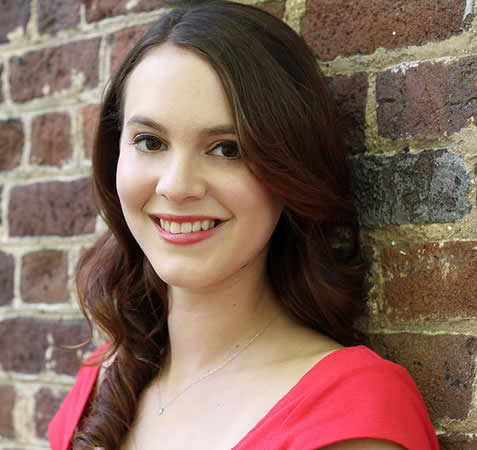Summer has passed, and as the leaves turn, we begin our journey into what the rest of the year holds. How will it end? What should we do when so little time is left? These questions are among many posed by the Greensboro Symphony‘s “Musical Quest” program, heard in Dana Auditorium.
Opening the program was Richard Strauss’ “Don Juan,” a staple in American orchestral auditions because it is notoriously difficult. The tone poem chronicles the adventures of the strapping womanizer, the audience encountering unexpected passages of pure beauty amidst the jaunty nature of the piece. Echoes of Korngold’s then-future score to Robin Hood can be heard in parts.
Dmitry Stikovetsky, a conductor of grace and fluidity, achieved the right balance of emotion and technical polish from his players. In the past, the maestro’s conducting has, at times, seemed too broad for more rhythmically-driven works (last season’s Rite of Spring for example), yet his “Don Juan” was so impassioned and precise that a few audience members in my row were hovering on the edges of their seats.
The second work, a more anachronistic selection for the program, featured veteran actor Peter Coyote of E.T. and PBS’s Pacific Century fame (the latter earned him an Emmy for voice over work) joining the orchestra in a winning version of Copland’s Lincoln Portrait. If there was ever doubt that the GSO could switch between musical styles in the silence of a 45-second pause, those doubts must be enthusiastically beaten down at all costs. Strauss to Copland is not an easy switch, much like driving a stick-shift before getting back in your automatic. Yet the orchestra’s sound of Americana (Kelly Burke augmenting Copland’s signature “yearning” tone with her clarinet solos) along with Coyote’s wrenching reading of Lincoln’s words) took everyone’s heart.
That said, the true surprise of the evening came after intermission with a presentation of portions of Edvard Grieg’s Peer Gynt (pronounced “Pear gint”), written as incidental music for Henrik Ibsen’s fantastical play about an impoverished Norwegian who sets about to pursue the daughter of the notorious Mountain King. The orchestra played excerpts from the suites and some selections of the additional incidental music Grieg wrote once previews had begun.
As with any Ibsen play, the plot is never easy. Peer Gynt marked a point in Ibsen’s career where he wanted to challenge himself by moving away from bourgeoisie drawing room dramas (Hedda Gabler, Ghosts, A Doll’s House) to a Gilgamesh-like epic. Gynt was just that: its title character climbs a mountain, beautiful ladies entrance with Salome style dances, and there are journeys to heaven, all climaxing in a resolution in the grand hall of the nameless Mountain King. Grieg, a friend of Ibsen’s, loved the idea of Norway being the setting for the play, agreeing to write the music and obsessing himself over the play the more he delved into it.
The two most famous pieces from the IGynt are “Morning Mood” and “In the Hall of the Mountain King.” The former has come to musicalize morning blissfulness in cinema – often comically followed by some loud interruption like a bomb exploding or the sky falling; and those of a certain generation remember “Morning Mood” in near carbon-copy variations by Carl Stalling in his Looney Toons scores. “In the Hall of the Mountain King” – the rock standard for classical music – has been used in everything from Stephen King movie trailers to a too-weird-to-be-true performance by The Who. Yet the GSO proved that the story of Gynt has more to offer than two of classical music’s top 40.
With Coyote providing narration and deeply felt excerpts from the play, the orchestra took us on the “musical quest” of Gynt as he learned the lesson of love winning out above good and evil. Along the way, we were serenaded by haunting songs from Gynt’s one true love. Solveig, sung with rich timbre and commanding presence by Emily Rose Siar, a former UNC Kenan Music Scholar and Music Academy of the West alum. She was an invested performer who gave us a lot in which to invest while listening to her. I often feel it is hard to relate to singers when they merely stand and sing (or, “Park and Bark” as it is in some circles). Siar, like the best, was an exception, allowing subtle gestures to be read intimately and deeply, as if we were watching close-ups in a film.
The three pieces on the program, works many know only from recordings, varied in period and style and were played with utmost respect by the orchestra, giving them a sort of re-animation or even resurrection. Peer Gynt is no story of Christ, nor is it Beowulf, so GSO’s programming of it could be seen as having been a bit risky, but the payoff and reaction from the audience (a long, earned standing ovation) cemented the fact that people still enjoy hearing things they may not know very well, if at all.
Change runs through these pieces and in the orchestra’s seemingly new image this season. Compared to last season’s questionable Breaking Bad-centered theme, this year looks and feels like a fresh game with an orchestra that is taking a risk with programming and that knows and respects the audience. The GSO is putting down new artistic roots – while strengthening existing ones.
The fun part will be sitting back and watching it bloom for days to come.
Note: For more information on this program, click here.











